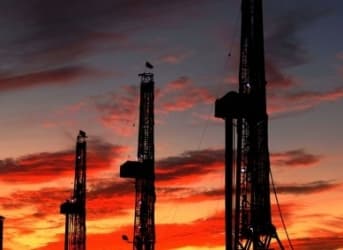The plunge in oil prices has a lot of the investment community heavily divided between those who see opportunity in US unconventional oil producers and those that see fracking as an unprofitable way to produce oil.
Interestingly though, very few people are levying similar criticisms against natural gas producers. David Einhorn, whose tirade against Pioneer Natural Resources made headlines recently, excoriated the business of fracking. But Einhorn explicitly exempted natural gas producers from his attack, instead referring to natural gas producers as low cost leaders.
That is because shale gas producers have been here before. Natural gas prices plummeted years ago and the industry has become used to surviving in a low-price environment. Related: California’s Climate Goals: Realistic Or Just Wishful Thinking?
There is an enormous amount of demand around the world for natural gas and the US is producing far more cheaply than anyone else. US natural gas has historically traded at between one and one-half the energy weighted price of US oil. Today that figure is closer to one-fifth, even with the fall in the price of oil. Europe and Asia are paying dramatically more for natural gas than America, and there is no sign of that trend reversing. That price difference has led many multi-national chemical companies to look at locating plants in the US to capitalize on the low price of natural gas.
The dynamics of the oil industry versus the natural gas industry are completely different. While the US is in the middle of the pack when it comes to oil production costs (though it is moving lower on this point), it is emphatically the low cost natural gas producer. Having seen natural gas prices crash several years before oil, drillers have already cleaned up their operations and cut costs. Related: This Tiny Nation Could Have Huge Oil And Gas Potential
Nevertheless, there are some problems unique to the natural gas industry. In particular, unlike oil, natural gas is very difficult to transport cost effectively. It can be moved around by pipeline or in liquid form, but both processes can be costly. More importantly, it requires a lot of time and upfront investment to build new pipelines and LNG terminals.
That has limited the opportunity for gas producers. If US natural gas export capacity could be expanded and costs brought down, it would dramatically improve the profitability of many fracking firms. But that will take time. Meanwhile, many investors are starting to become skeptical about energy producers overall, making capital a lot harder for some firms to access. And that is starting to lead to some notable bankruptcies and restructurings. Related: Saudi Arabia Continues To Turn Screws On U.S. Shale
Ironically, all of this comes just as it looks like the industry supply situation in natural gas may be starting to correct itself. In addition to supply trending down due to the chaos in the broader energy industry, demand looks set to increase due to the start-up of new chemical plants, a growing shift towards natural gas in electricity generation, and a slowly recovering global economy.
The next few months are not going to be easy for any energy company, but having been awash in natural gas for several years, natural gas producers are accustomed to low prices and have already made significant cost reductions. And as demand increases and supply falls, prices should finally start to rise. That, in turn, could well lead to significant bump in prices and profits for the forgotten side of fracking.
By Michael McDonald of Oilprice.com
ADVERTISEMENT
More Top Reads From Oilprice.com:
- Why Is Oklahoma Now The Earthquake Capital Of The U.S?
- Russian Gas: There Is No Alternative For Europe
- Could This New Business Model Save Fracking?


















